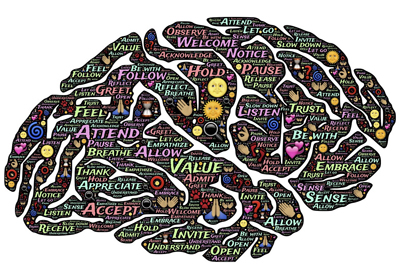Following on from our examination on Monday’s post of mindsets and their impact on people’s ability to learn new skills, the usual perception is that people either ‘have the right mindset’ or they don’t, so if they aren’t already effective in their job, the only practical way to change this is to change the job or move the person.
But mindsets are not the fixed, immovable things most people think they are; they can change quickly – even in one conversation. To do this you need to bear in mind three key principles:
- Mindsets are separate from the current situation: It’s a myth that mindsets are directly caused by the circumstances of the current situation. We often hear “I could do a better job if they gave me the budget I asked for”, or “we can’t make the target in the current market environment”. These views limit people’s potential in direct proportion to the degree that they believe they are true. In every organisation, it will be possible to find someone who seems to ‘buck the trend’, to act as if the prevailing perception of the circumstances just didn’t exist, and who produces levels of success that everyone else truly believes aren’t possible. These people aren’t buying into the prevailing mindset.
- The skills to change mindsets are different from the skills needed to change situations: The skills to alter people’s mindsets, their fixed perspectives about a situation, are things like listening, honouring and inquiring. The skills to alter situations include information gathering, analysis and presentation. Altering mindsets with information, analysis and presentation doesn’t work – you won’t change your feelings about your reduced budget if someone presents you with the logical case for cutting it! Mindsets soften when they are listened to and honoured, not criticised or ‘proved inaccurate’. Once they are listened to, people are more open to other views, not the ‘right’ or ‘better’ ones, simply equally valid ones. When this is done skilfully, our experience is that people almost always naturally embrace a perspective that empowers everyone and is best for the organisation.
- New mindsets are sustained through actions and results: When people embrace a new mindset, they always see new actions to take consistent with their new view; these could be conversations to have, commitments to make, things to stop doing, etc, and they will be immediately motivated to take action. It’s crucial to take these actions quickly, and you should make every effort to support them and ensure that they are successful. Once enough steps are taken and results produced, the new mindset is sustainable.
Mindsets – the key to unlocking potential
Mindsets are the key to unlocking the potential in you, your organisation and the people who work in it. ‘Limiting’ mindsets can quickly be shifted to ’empowering’ mindsets, and the impact can be seen in objective results within a matter of months. The catch is that to do this, you need to be willing to work on yourself, manage your own mind, and let go of your own limiting mindsets. The bonus is that your organisation sees objective results along the way and you and the people in it achieve your full potential.
[callout title=”Unlock your potential through shifting your mindset” button=”Here’s how” link=”/services/executive-coaching/” buttoncolor=”white, yellow, orange, red, blue, green, gray, black, alternative-1, alternative-2, alternative-3″ target=”_blank or _self”]Become more effective as a leader with Executive Coaching programmes[/callout]
